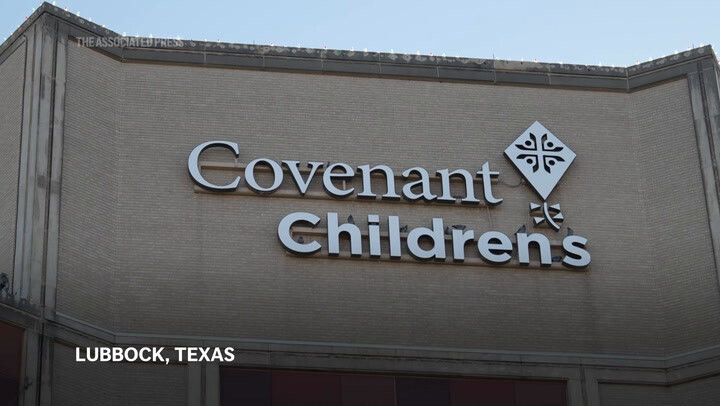
LUBBOCK, Texas — A school-aged child, unvaccinated against measles, has tragically died amidst a significant outbreak in rural West Texas, marking the first U.S. death from the highly contagious respiratory disease since 2015, state health officials confirmed Wednesday. The death underscores the severity of the outbreak, which has now reached 124 cases across nine counties since it began last month, representing Texas's most extensive measles outbreak in nearly 30 years.
The Texas Department of State Health Services (DSHS) and Lubbock health officials confirmed the child’s death to The Associated Press. The child, whose identity has not been released, received treatment at Covenant Children’s Hospital in Lubbock, although they were not a resident of Lubbock County.
"This is a profound tragedy and a stark reminder of the dangers of vaccine-preventable diseases," stated Dr. Amy Thompson, pediatrician and CEO of Covenant Health, during a press conference. "We have seen the serious consequences of measles firsthand, and this loss is devastating."
Outbreak Concentrated in Undervaccinated Communities
The outbreak has primarily affected rural areas of West Texas, particularly within a close-knit, undervaccinated Mennonite community. Gaines County, a region with a significant homeschool and private school population, has reported 80 cases. Notably, the county also has one of the highest rates of school-aged children in Texas who have opted out of at least one required vaccine, with nearly 14% skipping required doses during the last school year.
Lara Anton, a spokesperson for the DSHS, emphasized the vulnerability of these communities, stating, "The concentration of cases in areas with low vaccination rates highlights the critical importance of immunization."
Hospitalizations and Severe Complications
Covenant Children's Hospital has treated over 20 measles patients, including the initial case. Many patients have experienced severe respiratory complications, necessitating oxygen therapy and, in some instances, intubation. Dr. Lara Johnson, Chief Medical Officer at Covenant, noted that some patients developed bacterial pneumonia as a secondary infection.
"Measles can lead to serious complications, especially in young children," Dr. Johnson explained. "We are providing supportive care, as there are no specific antiviral treatments for measles. We are managing respiratory distress, addressing secondary infections, and ensuring these patients are as comfortable as possible."
Federal and State Response
The federal government, through the Department of Health and Human Services (HHS) and the Centers for Disease Control and Prevention (CDC), is providing support to the state's response efforts. This includes supplying vaccines and offering technical and laboratory assistance. However, the DSHS is leading the on-the-ground response.
Robert F. Kennedy Jr., a known vaccine critic, commented on the outbreak, stating that the HHS is monitoring the situation and downplaying its severity. However, his statements contained inaccuracies, including misstating the number of deaths and the nature of hospitalizations. HHS later clarified that there was only one death and that hospitalizations were for treatment, not quarantine.
Texas Governor Greg Abbott's office confirmed that they are in regular communication with the DSHS and epidemiologists, and that vaccination teams have been deployed to the affected areas. "The state is committed to providing all necessary resources to protect the health and safety of Texans," stated Andrew Mahaleris, a spokesperson for the governor.
Vaccination Remains Crucial
The measles, mumps, and rubella (MMR) vaccine is highly effective in preventing measles. The CDC recommends the first dose for children between 12 and 15 months of age, and the second dose between 4 and 6 years. Vaccination rates have declined since the COVID-19 pandemic, falling below the 95% threshold needed for herd immunity in many states.
"This outbreak is a stark reminder of the importance of vaccination," said Katherine Wells, director of the Lubbock Health Department. "Measles is incredibly contagious, and vaccination is the best way to protect yourself and your community."
The CDC has reported that measles cases have been on the rise in 2024, including a significant outbreak in Chicago. The resurgence of measles underscores the importance of maintaining high vaccination rates to prevent future outbreaks and protect vulnerable populations.
[Copyright (c) Global Economic Times. All Rights Reserved.]






























